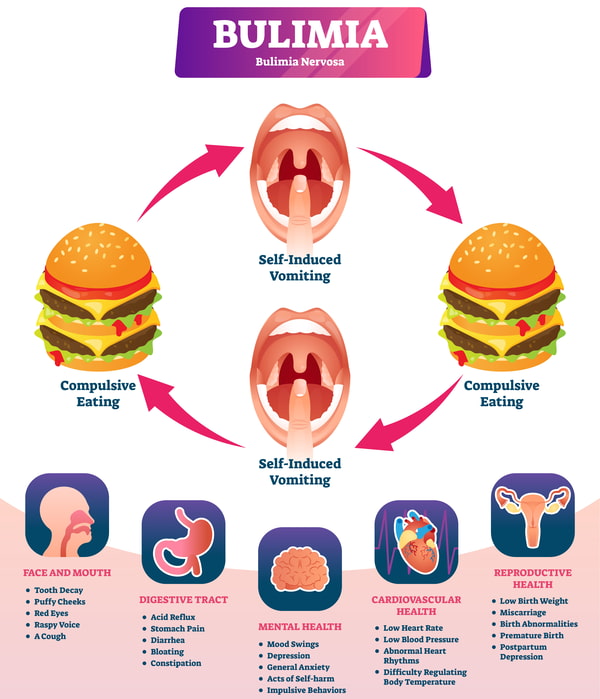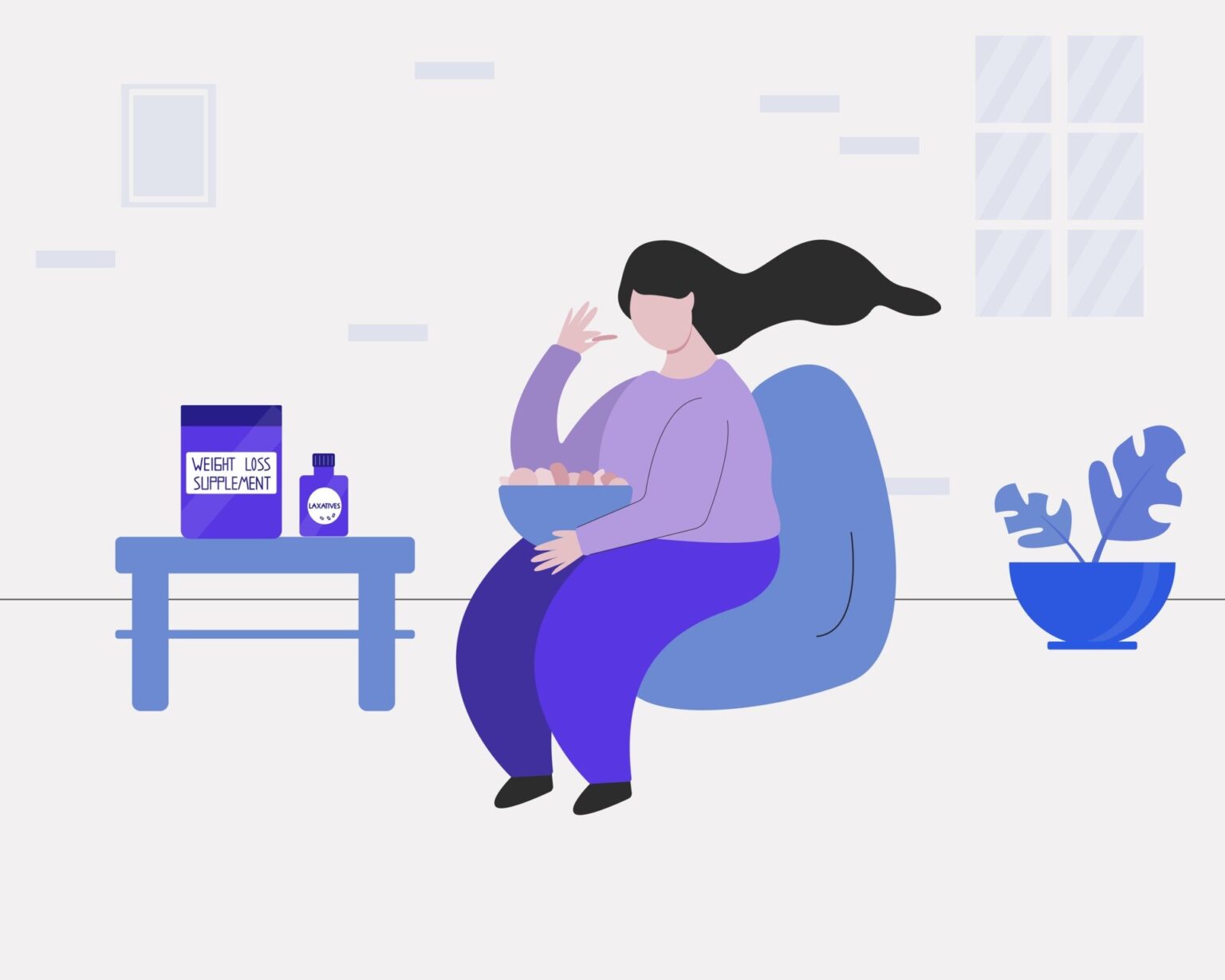BULIMIA NERVOSA
Bulimia nervosa is an eating disorder in which the patient eats and then purges. Purging here means vomiting out the food, taking laxatives or diuretics, and exercising excessively.
1.5% of women and 0.5% of men have been diagnosed with bulimia. Due to intense pressure on women to look thin and good, bulimia is more common among women.
A lot of professionals who have their careers riding on how good they look and how thin their bodies are, like actors, dancers & models, are also the victims of bulimia nervosa.

SYMPTOMS OF BULIMIA NERVOSA
- Phobia of gaining weight
- Fat-shaming by society
- Obsession with weight
- Binge eating
- Vomiting after bingeing
- Consuming laxatives & diuretics to purge food.
- Using weight-loss supplements & diet pills
- Following fad diets
- Irregular periods
- Fainting often
- Low blood pressure
- Insomnia
- Bloating & indigestion
- Sore throat
- Depression
- Swollen salivary glands
- Excessive exercise
- Isolating from society
- Eating alone as a result of shame
- Bulimia binging & purging cycle
- Bulimia binging & purging cycle
- A woman vomiting after binging on food

COMPLICATIONS FROM BULIMIA NERVOSA
- Constipation
- Kidney failure
- Burst Oesophagus
- Dehydration
- Decaying teeth
- Gum disease
- Nutrient deficiency
DIAGNOSIS OF BULIMIA NERVOSA
Patients with bulimia nervosa can get hospitalized frequently due to complications from bulimia. While receiving care if your primary care providers suspect that you have bulimia, they will conduct diagnostic tests for it.
- They will find out more about your eating habits, lifestyle, and medical history from you and your family.
- A full physical exam with blood and urine workup will be done.
- ECG test for identifying issues with your heart.
- Psychological evaluation to assess your views towards weight loss & body image.
- Use the DSM-5(Diagnostic and Statistical Manual of Mental Disorders) to check whether you fulfill the criteria used to diagnose bulimia nervosa.

TREATMENTS FOR BULIMIA NERVOSA
The treatment for bulimia nervosa is a 4-way approach –
- Psychotherapy – Cognitive behavioural therapy, familial support, and improving your social relationships is what helps bulimic patients lead a better life.
- Medications – Antidepressants can be used to treat bulimia with psychotherapy. Prozac is the preferred antidepressant and aprroved by FDA.
- Hospitalization – If symptoms are severe enough to require hospitalization, then that is what your providerds will recommend.
- Nutrient education – A dietitian will devise a plan to make sure that you receive a balanced diet.
If bulimia is ignored and left untreated, it can become life-threatening. Managing bulimia is a life-long process. Treatments focus on diet, efficient coping mechanisms, and creating healthy
If you or anyone you know is suffering from bulimia nervosa, seek help from our experienced psychologists. Call us on (469) 545-9983 to book an appointment.
